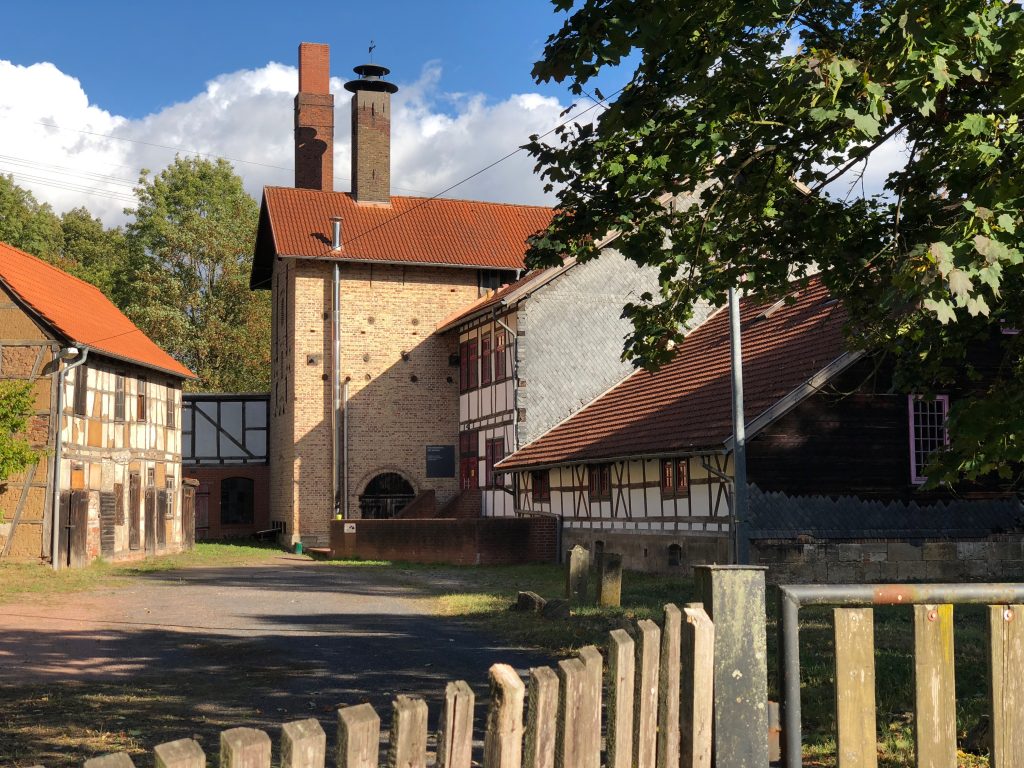

51. Tagung Radio Jazz Research
In Zusammenarbeit mit dem Lippmann & Rau-Archiv
16. – 18. April 2026, Eisenach
Jazz im politischen Leben.
Zur Rezeption improvisierter Musik in Deutschland
Lippmann & Rau-Archiv, Alte Mälzerei, Palmental 1
Zum Programm
Diese Tagung wurde maßgeblich ermöglicht durch eine Kooperation mit dem in Eisenach/Thüringen ansässigen Lippmann & Rau Archiv. Gegründet im Jahr 1999 als Internationales Jazzarchiv Eisenach, führte eine enge Zusammenarbeit mit der Lippmann+Rau-Stiftung 2009 zur Umbenennung. Die Eisenacher Institution ist ein exzellentes Beispiel dafür, dass es in Archiven dieser Art nicht nur um Bewahrung und das Verstehen von Vergangenem geht, sondern genauso um die Gestaltung der kulturellen Gegenwart und um Perspektiven für die Zukunft. Das wiederum bildet einen idealen Rahmen für das, was die Tagungsüberschrift „Jazz im politischen Leben“ anreißt.
Natürlich sind Struktur und Arbeit des Eisenacher Archivs ein unverzichtbares Thema der zweitägigen Zusammenkunft. Archiv-Leiter Reinhard Lorenz wird umfangreiche Einblicke geben. Umso interessanter dürfte sein, was Marie Härtling aus Darmstadt in der Gegenüberstellung über die Arbeit und die Positionierung einer weiteren Institution musikarchivarischer und -wissenschaftlicher Arbeit zu berichten weiß: dem bereits 1990 gegründeten Jazzinstitut Darmstadt, der größten öffentlich zugänglichen Jazzsammlung in Europa.
Als wesentlicher Faden zieht sich die Entwicklung des Jazz in der DDR durch Vorträge und Gespräche der Thüringer Tagung. Zum generellen Einstieg spricht Peter Niedermüller über die Instrumentalisierung von Kultur und deren repressive Mechanismen in totalitären Systemen, was unweigerlich in die Jahre des Nationalsozialismus führt. Michael Rauhaut bezieht in der Auseinandersetzung mit den rigiden Steuerungsversuchen musikalischer Aktivitäten in der DDR Erfahrungen aus Pop und Rock ein, vor allem am Beispiel der (auch im deutschen Westen geschätzten und gewürdigten) Ostberliner Gruppe Silly um Sängerin Tamara Danz.
Die Jazz-Entwicklung in der DDR, von den einschlägigen Staatsorganen argwöhnisch verfolgt, soll unter verschiedenen Blickwinkeln beleuchtet werden. Katharina Weissenbacher konzentriert sich in ihren Erläuterungen auf eine wichtige Kernzeit: die anderthalb Jahrzehnte zwischen Mauerbau und der Ausbürgerung Wolf Biermanns (1961-1976). Ulf Drechsel berichtet vom Engagement und von dem nachhaltigen Wirken seines Vaters Karlheinz, der als Rundfunkjournalist, Publizist und Festivalkurator das Jazzgeschehen in der DDR maßgeblich begleitete und prägte – und dabei natürlich auch ins Visier der Stasi geriet. Martin Breternitz hat die Funktion der DDR-Jazzclubs untersucht, in denen Freiheiten neben dem Alltag gelebt wurden. Mit Meister-Gitarrist Uwe Kropinski, der im Zuge der Tagung auch in einem öffentlichen Konzert zu erleben sein wird, kommt ein betroffener Zeitzeuge zu Wort. Aufgewachsen in der DDR, Mitte der siebziger Jahre vom Rock zur Improvisierten Musik „konvertiert“, 1986 in die Bundesrepublik gewechselt, in den späten Neunzigern zurückgezogen in seine Geburtsstadt Berlin, hat er das künstlerische Schaffen in der DDR aus verschiedenen Perspektiven erlebt bzw. verfolgt. Den Beweggründen und Überzeugungen jener, die sich seinerzeit dem „verdächtigen“ Jazz-Schaffen von seinesgleichen auf die Fersen hefteten, ist Rüdiger Ritter nachgegangen. „Wie und warum observiert man Jazz?“ ist eine so simpel anmutende wie berechtigte Frage, deren Beantwortung auch Einiges über das Potenzial des Jazz als einer politischen Musik aussagen dürfte.
ABLAUF
Donnerstag, 16. April 2026 Meeting RJR20.00 Uhr im Hotel „Thüringer Hof“,
Freitag, 17. April 2026
TAGUNG 1. Tag
im Lippmann & Rau-Archiv
9.30 Uhr
Peter Niedermüller:
Zwischen Zensur und unterhaltender Zerstreuung
Zum Umgang mit Musik in totalitären Systemen
10.30 Uhr
Katharina Weissenbacher:
Zwischen Jazzbrücke und Free Jazz – die Jazzszene in der DDR
11.30 Uhr
Ulf Drechsel:
Jazzjournalist Karlheinz Drechsel
Drahtseilakt an kurzer und langer Leine der Partei
14.30 Uhr
Das RJR-Porträt08:
Das L&R Archiv als politische Institution
Reinhard Lorenz im Gespräch mit Bernd Hoffmann
15.30 Uhr
Michael Rauhut:
Populäre Musik und Politik in der DDR
Forschungsperspektiven, Erkenntnisse, Themenfelder
17.00 Uhr
Nonkonformismus in DDR-Jazzclubs
Michael Rüsenberg im Gespräch mit Martin Breternitz
20.00 Uhr
Uwe Kropinski (g)
Im Lippmann & Rau-Archiv
– öffentliches Konzert –
Samstag, 18. April 2026
TAGUNG 2. Tag
im Lippmann & Rau-Archiv
9.30 Uhr
Rüdiger Ritter:
Wie und warum observiert man Jazz?
Ein „Leitfaden“ aus der DDR
10.30 Uhr
Das RJR-Porträt09:
Uwe Kropinski
Im Gespräch mit Arne Schumacher
11.30 Uhr
Marie Härtling:
Das Jazzinstitut Darmstadt
Ein Kulturinstitut der Wissenschaftsstadt Darmstadt
Änderungen vorbehalten


